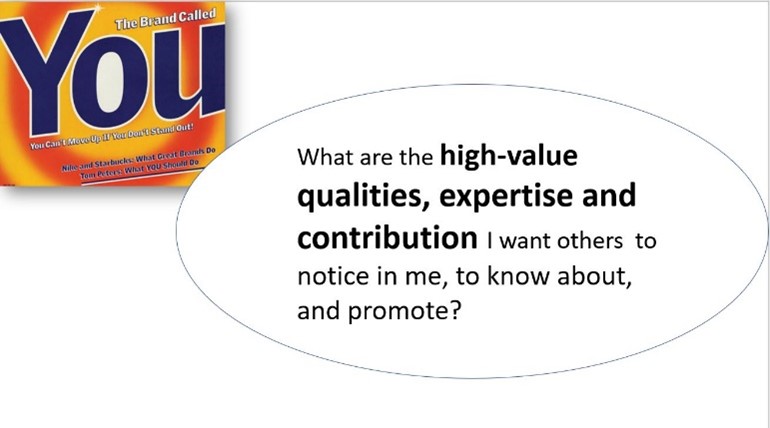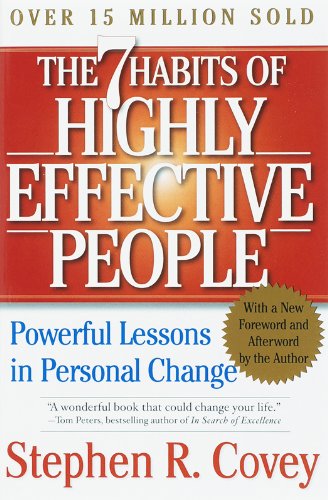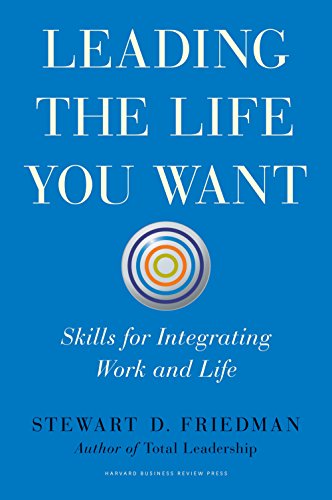Topic 1.4: Roles, Goals and Identity
They have their exits and their entrances, And one man in his time plays many parts
– William Shakespeare, As You Like It, Act 11, Scene VII
When we explore personal and professional development, we inevitably talk about goal setting. That goal setting, of course, occurs within the context of our current roles and, potentially, our aspirations for other goals in the future. Aligning our goals and roles with our sense of identity can be not only satisfying but also efficient in managing or ‘stewarding’ our personal resources.
So, setting goals or establishing aspirations and then developing plans to realise those goals and aspirations needs to be done in context, not least the context of what we see as our own purpose or direction. This takes us back, in part, to the earlier McAdam model (the Actor, the Agent, and the Author) and reminds us that our life and our identity is something that we have had a hand in shaping and crafting. The work you’ve done around DiSC, strengths and values can provide some valuable insights into how to most productively and rewardingly focus your continuing plans for development and growth.
Let’s take a look at a few resources and principles that can help your thinking and planning in this area.

One approach is to think about your “personal brand”. Brands are, at essence, “reputation” – what a product, company, organisation, or service is known for. And it’s the same with us as individuals – and particularly as professionals. This includes public sector professionals. Earlier you looked at some aspects of yourself through the lenses of behavioural descriptions, values and strengths. Being conscious of these things helps us ensure that what we do is aligned with what matters most to us and where we can make our best contribution. At its heart, a professional brand is about identifying and developing where and how you make your “highest-value contributions”.
10 min
This article from the Australian Public Sector magazine The Mandarin, offers some advice for understanding and managing your personal brand. Note to links to values, strengths and purpose (your “why”).
10 min
Watch this short video presentation (2 mins).
Daniel Pink is the author of Drive: The surprising truth about what motivates us.
Now that you’ve read about your personal brand and watched the video you should be able to consider goal setting and professional development in a more focused and aligned way.
Let the concept run around in your subconscious while you consider the following material about roles and goals.
As you saw in the video, one of the challenges we face is that we often have too many things to do, too many competing priorities, too many things demanding our energy, and often, that leads to dissatisfaction with our performance and / or the progress we are making.
In The 7 Habits of Highly Effective People, Stephen Covey addresses this everyday challenge under his habit number 3 as “Put First Things First”. He argues that most people spend too much time on what is urgent and not enough time on what is important. “Urgent matters are usually visible,” he says.
 “They press on us; they insist on action. They’re often popular with others. They’re usually right in front of us. And often they are pleasant, easy, fun to do. But so often they are unimportant! Importance, on the other hand, has to do with results. If something is important, it contributes to your mission, your values, your high priority goals. We react to urgent matters. Important matters that are not urgent require more initiative, more proactivity. We must act to seize opportunity, to make things happen” (pp. 151) [1]
“They press on us; they insist on action. They’re often popular with others. They’re usually right in front of us. And often they are pleasant, easy, fun to do. But so often they are unimportant! Importance, on the other hand, has to do with results. If something is important, it contributes to your mission, your values, your high priority goals. We react to urgent matters. Important matters that are not urgent require more initiative, more proactivity. We must act to seize opportunity, to make things happen” (pp. 151) [1]As we think about self-management, how we manage our time is an important aspect to consider. Our time is given to the various roles we play. The challenge is often how effectively we direct our attention and energy when managing our roles. Some roles are more important – or essential – than others. Some renew and revitalise our energy while some deplete it. Some roles may have outlived their necessity or usefulness. Some new roles may be emerging or potential – if we can create the space to embrace them.
Covey summarises some well-known and sage advice about this: “You have to decide what your highest priorities are and have the courage – pleasantly, smilingly, no-apologetically, to say ‘no’ to other things. And the way you do that is by having a bigger ‘yes’ burning inside. The enemy of the ‘best’ is often the ‘good’.” (Covey, 1989: 156-7)
Having clarity about our most important roles (including how they are shaped and understood by our values) helps us set worthwhile goals that enable us to pursue “the best” that Covey refers to, rather than constantly spinning our wheels dealing with “good” but maybe not necessary or valuable things.
Wharton Business School Practice Professor of Management, Stewart Friedman, has looked at this issue of roles, goals and values for many years. In his work on Total Leadership and his book Leading the Life You Want: Skills for Integrating Work and Life (2014), Friedman argues that to be excellent performers we need to manage across the four dimensions of our lives: work, home community and self.
 “From years of studying people in any different settings, I have found that the most successful are those who can harness the passions and powers of the various parts of their lives, bringing the together to achieve what I call four-way wins: actions that result in life’s being better in all four domains (work or school; home or family; community or society; and the private realm of the mind, body and spirit” (p3)[2]
“From years of studying people in any different settings, I have found that the most successful are those who can harness the passions and powers of the various parts of their lives, bringing the together to achieve what I call four-way wins: actions that result in life’s being better in all four domains (work or school; home or family; community or society; and the private realm of the mind, body and spirit” (p3)[2]He identifies three key principles and six associated practices for each that help us to harnessing the possibilities in various parts of our lives. These are:
- Be real – Know what matters; Embody values consistently; Align actions with values; Convey values with stories; Envision your legacy; Hold yourself accountable
- Be whole – Clarify expectations, Help others, Build supportive networks; Apply all your resources; Manage boundaries intelligently; Weave disparate strands
- Be innovative – Focus on results; Resolve conflicts among domains; Challenge the status quo; See new ways of doing things; Embrace change courageously; Create cultures of innovation
(Friedman, 2014, pp7-8)
30 min
Read only Chapter 8.
Our earlier discussion of values is also an important underpinning to any discussion of professional and personal development. A management development program like this is naturally going to encourage you to set some tangible and measurable goals for yourself and your ongoing development. We all know the importance of goals. Goals help us focus our efforts and energies. They give us energy. They provide direction. But it’s important to understand the “role of goals” – and one of the roles of goals is to help us grow in our roles.
“One of the major problems that arise when people work to become more effective in life is that they don’t think broadly enough,” says Covey. “They lose the sense of proportion, the balance, the natural ecology necessary to effective living. They may get consumed by work and neglect personal health. In the name of professional success, they may neglect the most precious relationships in their lives.” (Covey, 1989: 135-6)
Goal setting on its own may help us get things done, but they may not be the right things. Our goals should be a reflection of our values and of how our values shape and guide our roles in life and work.
When we set goals for ourselves, it’s easy to be ambitious or choose the “right” goals (e.g., get promoted to senior manager). It’s also easy to either set goals we don’t really believe in or that may disappoint us – whether or not we achieve them. That’s why establishing a clear sense of direction is so foundational. What are your values? What are your roles? (Including what future roles you may anticipate or aspire to.)
So, before committing to any specific goals, it can be valuable to consider your current strengths in your various roles. It’s easy to focus on where we are not doing well and resolve to “do better”. But what about where we are strong? Remember the strengths based activities and reflections earlier?
Okay, so all our preparatory work should help you start to identify some practical, positive values based goals for your continuing self-development. You don’t need to get too detailed yet – this will be a work in progress. But try to identify a few goals for yourself.
Required Activity
10 min
It’s time now to start to identify some goals for yourself in relation to at least some of your roles as part of your professional and personal development.
While this activity is primarily about your development, it will also be a useful part of your first piece of assessment for this unit.
Deeper Learning Reflection
10 mins
- What do you think?
- What principles from this article might you apply to your own goal setting and development?


